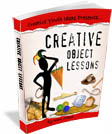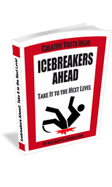Salt is necessary for life. It is made from sodium (Na) which is an unstable metal which easily bursts into flame and chloride (Cl) which is a deadly gas. Salt is used to preserve fruits and meats, to add flavor to food, and even to heal wounds. In Roman times it was difficult to obtain and so was considered very valuable. Soldiers were paid with salt which gives us the English word “Salary” and the phrase to be “worth his salt.” But Jesus used salt to describe the way the Disciples were to relate to the world. What’s the lesson for us?
What you need
- Salted and unsalted peanuts
- Salted and unsalted popcorn
- Salted and unsalted snacks
- Dried fruits / salt preserved fruits
- Blindfolds
(If you want to add a more fun, buy a variety of jelly bean flavors. Jelly Belly has a lot of creative flavors but any Jelly Beans will work)
Preparation
- Place the snacks into separate bags or bowls.
What to do
- Blindfold students and ask them to identify the various foods by taste.
- Ask youth to describe the various foods and the differences. Make a list.
TAKE IT TO THE NEXT LEVEL
Debrief
- Which of the foods has the strongest taste and why?
- Which of the foods do you think is the most salty?
- What are some foods that taste better, that come to life, when a little salt is added (Potato chips, French fries, peanuts, popcorn)
- Make a list of anything that comes to mind when you hear the word “salt”.
MAKE IT SPIRITUAL
1. Read Matthew 5:13-16 (NIV)
“You are the salt of the earth. But if the salt loses its saltiness, how can it be made salty again? It is no longer good for anything, except to be thrown out and trampled underfoot.”
2. How can we influence the world in the same way as salt?
- Christians like salt are of great value
- Christians like salt are a preservative to the decay around us in the world
- Christians like salt are to add zest, flavor, excitement to the world
- Christians like salt are to make people thirsty for the Living Water
- Christians like salt can help promote healing
- Christians like salt can lose our influence and usefulness
Like salt we preserve, we help to offset the decay in morals around us. Like salt we add flavor, we make a difference that people can notice. Like salt, we make people thirsty for the water of life. Like salt we bring others into wholeness and healing through Christ. We make a difference not only by our presence and our actions, but also by our words. (Colossians 4:5-6)
MAKE IT PRACTICAL
Describe a time when you’ve seen a fellow Christian act as salt to make a difference?
How can we prevent ourselves from being diluted, of being mixed with other things so that we are no longer salty?
- In what ways are Christians of great value in the world?
- In what ways are Christians a preservative to prevent decay?
- In what ways does the life of a Christian add flavor to the world?
- In what ways do Christians make people hungry for the living water – Christ?
- In what ways do Christians promote healing?
- In what ways can Christians lose our influence and become useless to Christ?
MAKE IT PERSONAL
If we are not making a difference in the world, what use are we? The reason God doesn’t take us straight to heaven is because he wants us to make a difference here. As Christians, if we in the world, but there is no difference between us and the world around us, we have lost our saltiness. If people cannot see the difference God has made in our lives, we have lost our saltiness. If we have no positive influence, we don’t bring healing, and add something to those we come in contact with, we have lost our saltiness.
- What one lesson can you take from this study and apply to your own life?
- How can you, like salt, make a difference when you are at school, at home, among your friends, in your neighborhood?
Additional Scriptures
Colossians 4:5-6
“Walk in wisdom toward those who are outside, redeeming the time. Let your speech always be with grace, SEASONED WITH SALT, that you may know how you ought to answer each one.”
Mark 9:50
“Salt is good, but if it loses its saltiness, how can you make it salty again? Have salt among yourselves, and be at peace with each other.”
Luke 14:34
“Salt is good, but if it loses its saltiness, how can it be made salty again? 35 It is fit neither for the soil nor for the manure pile; it is thrown out.”
Matthew 5:13-16
“You are the salt of the earth. But if the salt loses its saltiness, how can it be made salty again? It is no longer good for anything, except to be thrown out and trampled underfoot.”
PLEASE SHARE THIS IDEA ON FACEBOOK
 MORE IDEAS? See “Creative Object Lessons”
MORE IDEAS? See “Creative Object Lessons”
200 page e-book that explains everything you need to know when planning your very own object lessons. It contains 90 fully developed object lesson ideas and another 200 object lesson starter ideas based on Biblical idioms and Names / Descriptions of God.


